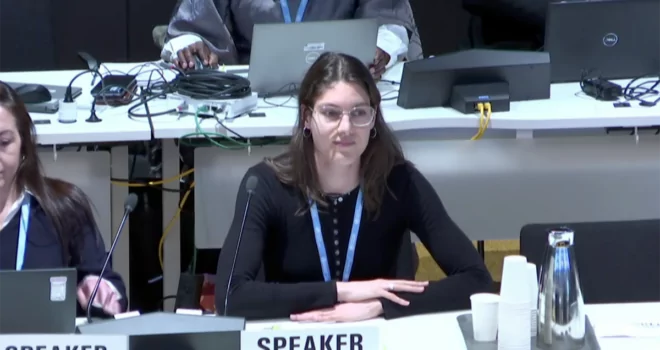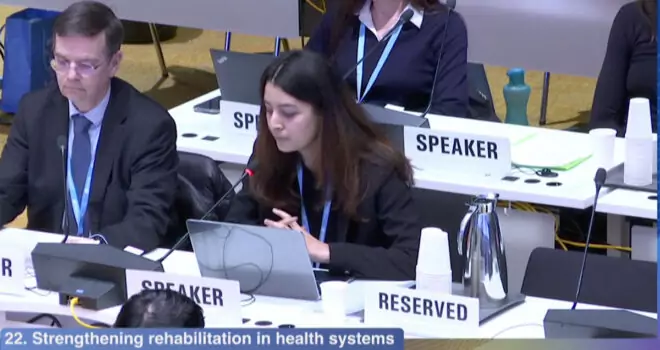The document of the World Heart Federation “World Heart Vision 2030” states: “Our global vision is to create healthy environments for cardiovascular health, connecting planetary health and cardiovascular health. Elements such as climate change, the way we produce and consume food, the quality of the air we breathe and of the water we drink”. (1)
In the Argentine Society of Cardiology, we created the “Cardioecology Group”, which works not only with air pollution and climate change but also with other sources of pollution that can cause cardiovascular disease, like noises, chemical pollutants of the food chain, radiation and emerging pollutants (absence of green spaces, electromagnetic fields, light exposures). (2)
Cardiologists recommend eating 5 or more fruits and vegetables each day to promote a healthy lifestyle, and our group doubles down the bet, advocating the production of vegetable food. In this way, we are fostering an ambitious programme called “ProFAV” (Producción Familiar de Alimento Vegetal – in English: Family Production of Vegetable Food) forward to agroecological production of veggies. The main goal is to feed the vulnerable population in countries where access to food is not guaranteed, in order to provide the community with healthy products.
Why is it our concern to get involved in food production?
The benefits of the agroecological method could be:
- Feed the vulnerable population, mainly in low- and middle-income countries in a win-win deal: produce healthy food with a sustainable production method.
- Avoid the use of agrochemicals. It will reduce the loss of biodiversity and chemical-related diseases.
- Change the loss of the surface of the forest because of the expansion of agriculture-related lands by green space gains mostly in urban areas.
- It’s cheaper and more accessible
- It’s fun.
- It increases physical activity.
- If we compost, we can recycle a third of our waste.
- We can create an agroecological tradition.
- People who produce veggies have better habits: more physical activity, more consumption of vegetables and fruits, and less consumption of red meat may reduce the production of methane by the livestock, reducing the greenhouse effect. Agroecological vs conventional agriculture method is associated with less obesity, less diabetes and hypertension, and metabolic syndrome. Other non-communicable diseases like some forms of cancer, and pregnancy related diseases would have benefits in observational studies. (3,4,5)
Furthermore, our proposal is in agreement with the following Sustainable Development Goals of the United Nations:
- No poverty
- Zero hunger
- Good health and well-being
- Reduced inequalities
- Sustainable cities and communities
- Responsible consumption and production
- Climate action
- Life on land
- Partnership for the goals (6)
The way forward:
Cardiologists don’t know about agriculture, so in the Argentine Society of Cardiology, we are generating an alliance with the National Institute of Agriculture Technology (INTA in Spanish) because they have the “know-how” about vegetable gardens and agroecological methods. We are planning to work together fostering community and health professionals (incorporating this idea in the cardiovascular prevention guidelines, sharing sessions in congresses and symposia, etcetera) in this healthy habit. Some of our actions including in the project are:
Inclusion the agroecological vegetable garden practice in different levels of education as a compulsory subject.
Creation of community vegetable garden schools for adults or families.
Creation of community compost to share with all the people who can´t do it in the place they live and need fertile ground to enhance the production.
Creation of vegetable gardens in hospitals working with mental health patients.
Creation of agroecologic vegetables fairs to sell healthy food once or twice a week and stimulate local production avoiding the pollution related to the transportation from far sources.
Inclusion of the family vegetable production in all the cardiovascular prevention guidelines as a healthy habit.
We invite the cardiovascular community to be part of our propose. We can all live better following the motto of the World Heart Federation: “Cardiovascular Health for Everyone”
We can change our destiny.
References
(1) World Heart Vision 2030: driving policy changes. https://world-heart-federation.org/world-heart-vision-2030/
(2) Argacha JF et al. Ecology of the cardiovascular system: part II, a focus on non air related pollutants. Trends Cardiovasc Med 2019 july: 29 (5); 274-282.
(3) Vigar V et al. A sistematic review of organic versus conventional food comsuption: Is there a measurable benefit on human health?. Nutrients 2020; 12,7: 1-32.
(4) Baudry J et al. Health and dietary traits of organic food consumers: results of the NutriNet-Santé Study. British Journal of Nutrition 2015; 114: 2064-2073.
(5) Baudry J et al. Association of frequency of organic food consumption with cancer risk. JAMA Intern med 2018 Dec; 178 (12): 1597-1606.
(6) Sustainable Developed Goals of United Nations. https://sdgs.un.org/goals



